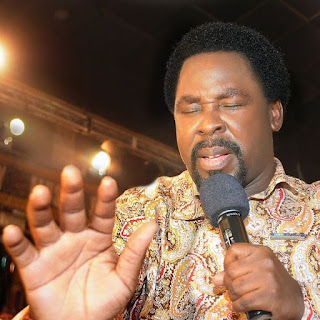Federal Government Sheds More Light On Electricity Subsidy for 75% Of The Population...
According to the Federal Government, 75% of the nation's electricity users would continue to get cost assistance for their electricity supply.
The announcement came after a recent 300% increase in the cost of power for Band A subscribers caused a stir among the public.
Adebayo Adelabu, the minister of power, made this statement at the ministerial press briefing that the Ministry of Information hosted to promote President Bola Tinubu's Renewed Hope Agenda for the power industry.
In addition to receiving 20 to 24 hours of power per day, Adelabu claimed that people who are now impacted by the Band A tariff hike will also be able to afford the new tariff after an analysis of their financial situation.
He emphasized that until now, Band A customers had been receiving 70% of the more than N1.4 trillion in government subsidies for national energy supply.
The minister pointed out that in order to promote investment and enhance the nation's power supply, President Tinubu needed to ensure equity. To do this, he had to approve the payment of a tariff corresponding to the 15% of electricity consumers who enjoy a near monopoly on power supply, rather than giving them an excessively generous government subsidy that benefits only 75% of Nigerians.
“I appeal to Nigerians to display some level of understanding with policies of this government. The President has vowed to use the power sector to drive the economy, even though it may appear to be tough in the beginning.
“We know the inflation rate is there, devaluation is there and the devaluation of the naira is also there, and government is aware of all these but the removal of subsidy is necessary pains that people will face to come out of those hardships.
“Reforms come with necessary pains but joy comes after the fixing have been achieved.”
He reiterated that equivalent to over N3 trillion, or 10% of government revenue, the government was subsidizing 67% of the cost of producing, transmitting, and distributing power in Nigeria.
“I assure you that aside Band A customers who are just about 1.5 million, the remaining 10 million customers will continue to enjoy government subsidy of about 70%.
“We have also established that these 15% customers are willing to pay for the 20 to 24 hours of electricity supply they get.
“The average cost of generating power per day of using generator is not less than N500 per hour. So, if we are putting the cost of electricity at N235 per hour, it is still less than 50% of self generation obtainable with Band A customers.”
In his description of issues facing the industry, he mentioned weak injection substations, outdated transformers, vandalised gas pipelines, gas supply shortages, operating costs, and a roughly 15 million metering shortfall.
“Only 481 feeders have been identified and classified as able to feed uninterrupted power to the consumers.”
He went on to say “in January this year, generation invoice was N240 billion, but the GenCos were asked to pay only N24 billion, which is only 10% of the bill.”
The briefing, according to Minister of Information and National Orientation Muhammad Idris, was designed to be easily accessible for public accountability. He emphasized that this was a component of President Tinubu's strategy to ensure that the public was properly informed.
The Minister stated that he was joined by the Minister of Power, Mrs. Olu Verheijen, the President's Special Advisor on Energy, Dr. Musiliu Oseni, Vice-Chairman of the Nigerian Electricity Regulatory Commission (NERC), other NERC Commissioners, and other stakeholders in reiterating the government's commitment to openness in public communication as a purposeful policy to foster public trust.
Although misunderstandings and worries about the tariff review are reasonable, Idris emphasised that the study was a calculated move in the direction of a more egalitarian, efficient, and sustainable electricity market.



Comments
Post a Comment